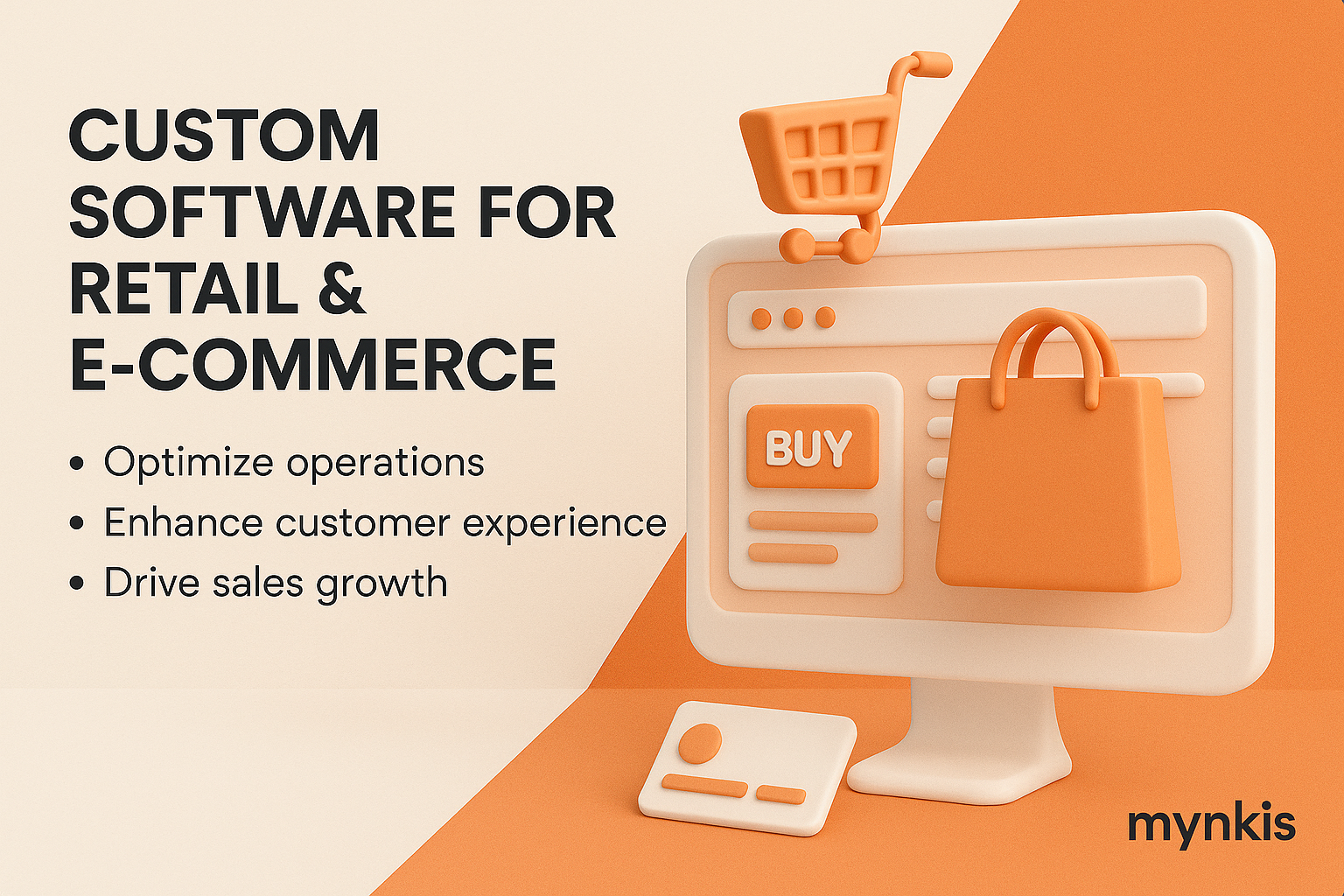Schedule a Demo
In my work with retail clients, I've witnessed a growing frustration with out-of-the-box e-commerce platforms. Many business owners and executives express concerns about limited customization, the inability to scale with business growth, and solutions that do not fully align with their branding and customer experience goals. That's where custom software development comes in. It's not just about having an online store; it's about crafting a digital presence that stands the test of time and competition.
Custom software solutions can be a game-changer for retailers. One key advantage is the ability to tailor your platform to meet specific business needs and user behaviors. For instance, instead of generic browsing categories, you can implement an AI-driven recommendation engine that learns from user interactions and enhances customer satisfaction and sales. Not to mention, the scalability of custom solutions ensures they evolve as your business grows.
Another benefit is enhanced security. According to a report by McAfee, e-commerce businesses lose over $2 billion annually to cybercrime. Custom development can implement robust security protocols from the ground up, tailored to the unique vulnerabilities faced by retailers.
Moreover, SEO integration is not just an afterthought; it's part of the core design. By building SEO best practices into the architecture of your site, you can improve your store's visibility without relying heavily on paid ads. In my experience, this approach leads to sustainable organic traffic growth, significantly boosting your ROI over time.
With custom software, you're not limited to what's commonly available. I've helped retailers integrate features like virtual try-ons, augmented reality shopping, and personalized customer journeys that boost engagement and conversion rates. These advanced functionalities provide a competitive edge in a saturated e-commerce market.
When considering such features, I recommend working with a team that understands both your industry and the capabilities of modern technology. For example, incorporating a real-time inventory management system directly within your online store not only streamlines operations but also enhances the shopping experience for your customers.
Let's face it, custom software development isn't cheap. You're looking at a significant initial investment, with costs typically ranging from $10,000 to $100,000 depending on the complexity of your requirements. Based on available research, individual results may vary, and this investment needs to be weighed against the long-term benefits it can bring.
However, in many cases, the high cost is justified. For one, you aren't paying for unneeded features that come bundled with off-the-shelf solutions. Every dollar spent on custom development directly contributes to creating a product uniquely designed for your business.
Additionally, the cost includes not just development but also the flexibility to adapt and refine your platform as market trends evolve. This isn't something you can easily achieve with rigid pre-built solutions. Consider it an investment in your business's digital future.
While the initial outlay can be substantial, the return on investment (ROI) from a custom e-commerce solution often more than justifies the cost. Personalized UX leading to higher conversion rates, improved SEO leading to organic growth, and the ability to rapidly pivot to new trends all contribute to long-term profitability.
I've had clients who initially hesitated due to the perceived costs, but once they see the operational efficiencies and customer feedback, their concerns shift to excitement about future potential. You have to think about not just today but where you want to be five or ten years down the line.
Before diving into custom software development, there are several factors retailers need to consider. Firstly, evaluate your current infrastructure and what you really need from a new system. Sometimes, small tweaks can bridge the gap between what you have and what you need, but often, more significant changes are necessary.
Also, consider your team's ability to manage and maintain this new system. Custom solutions might require a dedicated IT staff or partnership with a software provider for ongoing support. Being prepared for these responsibilities will save you headaches down the line.
Lastly, look at your competition. If most are using similar platforms, there's a significant opportunity to differentiate yourself with a custom solution. It's a chance to lead the pack rather than follow.
The decision to invest in custom software development for your e-commerce needs is not to be taken lightly. Yet, with careful planning and a clear understanding of the benefits and costs, you can create a digital storefront that not only meets current needs but sets the stage for future success.
In my journey assisting retailers with this shift, the most successful projects have been those where the business owners were fully engaged in the process. They understood their vision and how custom software could bring that vision to life. It's this kind of partnership that fuels innovation and elevates retail e-commerce to new heights.
